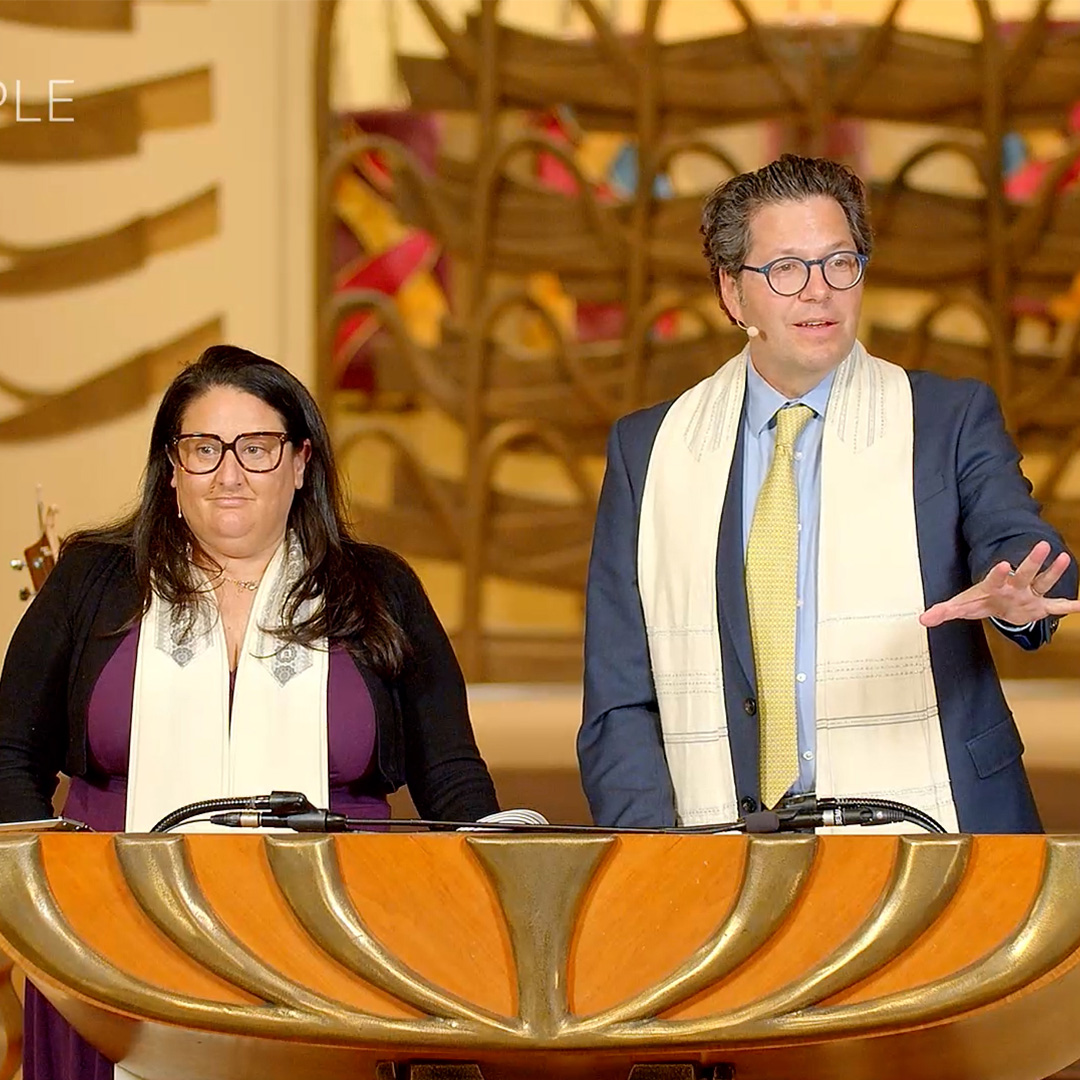
Come Together
Rabbi Yoshi Zweiback and Rabbi Sari Laufer
In a Shabbat service that featured our Wise School students, Rabbis Yoshi and Sari discuss the last Torah portion of Genesis, wherein Jacob gives his blessings to his children. The richness of the portion leads to teachings about fatalism versus determinism, patriarchy, the nature of blessings, facing the realities of an imperfect world, forgiveness, and accepting the good news with the bad.
From sibling rivalry to attempted murder, this portion is chock-full of drama. As Jacob gathers his children, he speaks to his 12 sons and his two grandsons by Joseph (excluding his daughter Dinah and other female descendants as we end an admittedly patriarchal book). Though Jacob promises to tell them what is to come in one verse, that promise is absent in the next verse, and he reveals nothing of the future. Medieval scholar Rashi posited that Jacob wanted to tell his sons what would happen in the future, but that God’s presence in the corporeal world—the feminine-coded Shechinah—stopped him short. Judaism, noted the late Rabbi Lord Jonathan Sacks, is not a fatalistic religion; the future is not pre-determined, and the two verses illustrate that we—mankind—gets to determine its own future.
As Jacob continues, he gives his blessings, but they are not all positive. In fact, his blessings include both successes and shortcomings, the potential and the pitfalls; they are painfully honest. We do not, Rabbi Sari reminds us, live in a world where all the news is good, and, as we learn from Jacob, hearing only the good news does not always serve us. It does not make us face reality. Rabbi Sari cites Rabbi Cheryl Peretz, who writes that Jacob wanted his sons to hear that, despite the challenges they faced and the consequences of their actions, they were each still a part of the family, and that each of them would be a part of the new nation.
January 6, 2023 | 13 Tevet, 5783
